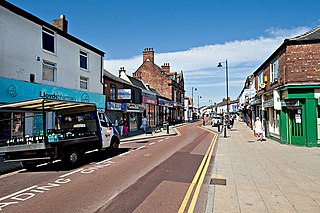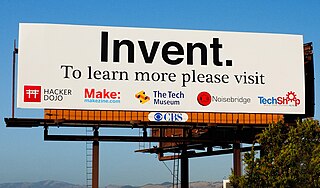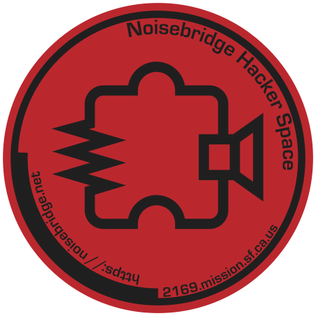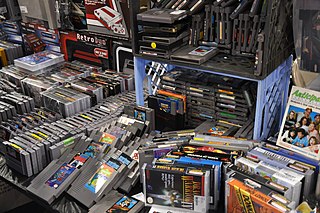
Internet activism, hacktivism, or hactivism, is the use of computer-based techniques such as hacking as a form of civil disobedience to promote a political agenda or social change. With roots in hacker culture and hacker ethics, its ends are often related to free speech, human rights, or freedom of information movements.

Internet culture is a quasi-underground culture developed and maintained among frequent and active users of the Internet who primarily communicate with one another online as members of online communities; that is, a culture whose influence is "mediated by computer screens" and Information Communication Technology, specifically the Internet.

Leigh is a town in the Metropolitan Borough of Wigan, Greater Manchester, England, on low-lying land northwest of Chat Moss.

Atherton is a town in the Metropolitan Borough of Wigan in Greater Manchester, England and historically part of Lancashire. The town, including Hindsford, Howe Bridge and Hag Fold, is 5 miles (8.0 km) south of Bolton, 7 miles (11.3 km) east of Wigan, and 10 miles (16.1 km) northwest of Manchester. From the 17th century, for about 300 years, Atherton was known as Chowbent, which was frequently shortened to Bent, the town's old nickname. During the Industrial Revolution, the town was a key part of the Manchester Coalfield.

A community interest company is a type of company introduced by the United Kingdom government in 2005 under the Companies Act 2004, designed for social enterprises where there is a wish to use their profits and assets for the public good. CICs are intended to be easy to establish, with all the flexibility and certainty of the company form, but with some special features to ensure they are working for the benefit of the community. They are overseen by the Regulator of Community Interest Companies.
Digital anthropology is the anthropological study of the relationship between humans and digital-era technology. The field is new, and thus has a variety of names with a variety of emphases. These include techno-anthropology, digital ethnography, cyberanthropology, and virtual anthropology.

Walkden is a town in the City of Salford in Greater Manchester, England, six miles northwest of Salford, and seven miles of Manchester.

A hackerspace is a community-operated, often "not for profit", workspace where people with common interests, such as computers, machining, technology, science, digital art, or electronic art, can meet, socialize, and collaborate. Hackerspaces are comparable to other community-operated spaces with similar aims and mechanisms such as Fab Lab, men's sheds, and commercial "for-profit" companies.
Do-it-yourself biology is a biotechnological social movement in which individuals, communities, and small organizations study biology and life science using the same methods as traditional research institutions. DIY biology is primarily undertaken by individuals with limited research training from academia or corporations, who then mentor and oversee other DIY biologists with little or no formal training. This may be done as a hobby, as a not-for-profit endeavor for community learning and open-science innovation, or for profit, to start a business.

The maker culture is a contemporary subculture representing a technology-based extension of DIY culture that intersects with hardware-oriented parts of hacker culture and revels in the creation of new devices as well as tinkering with existing ones. The maker culture in general supports open-source hardware. Typical interests enjoyed by the maker culture include engineering-oriented pursuits such as electronics, robotics, 3-D printing, and the use of computer numeric control tools, as well as more traditional activities such as metalworking, woodworking, and, mainly, its predecessor, traditional arts and crafts.

Noisebridge is an anarchistic maker and hackerspace located in San Francisco. It is inspired by the European hackerspaces Metalab in Vienna and c-base in Berlin. Noisebridge describes itself as "a space for sharing, creation, collaboration, research, development, mentoring, and learning". Outside of its headquarters, Noisebridge forms a wider international community. It was organized in 2007 and has had permanent facilities since 2008.
The digital commons are a form of commons involving the distribution and communal ownership of informational resources and technology. Resources are typically designed to be used by the community by which they are created.
HipHop Virtual Machine (HHVM) is an open-source virtual machine based on just-in-time (JIT) compilation that serves as an execution engine for the Hack programming language. By using the principle of JIT compilation, Hack code is first transformed into intermediate HipHop bytecode (HHBC), which is then dynamically translated into x86-64 machine code, optimized, and natively executed. This contrasts with PHP's usual interpreted execution, in which the Zend Engine transforms PHP source code into opcodes that serve as a form of bytecode, and executes the opcodes directly on the Zend Engine's virtual CPU.

Leigh Spinners or Leigh Mill is a Grade II* listed former cotton mill in Leigh, Greater Manchester. After being disused for many years one of the mill buildings has been redeveloped into an arts and heritage centre.
Ladies of Code is an international non-profit organization dedicated to supporting professional women software developers. The organization is best known for its meet-ups, conferences, hack nights, career development workshops, study groups, and speaker series featuring influential information technology industry experts.

A library makerspace, also named Hackerspace or Hacklab, is an area and/or service that offers library patrons an opportunity to create intellectual and physical materials using resources such as computers, 3-D printers, audio and video capture and editing tools, and traditional arts and crafts supplies. In the field of library science, makerspaces are classified as a type of library service offered by librarians to patrons.

Video game preservation is a form of preservation applied to the video game industry that includes, but is not limited to, digital preservation. Such preservation efforts include archiving development source code and art assets, digital copies of video games, emulation of video game hardware, maintenance and preservation of specialized video game hardware such as arcade games and video game consoles, and digitization of print video game magazines and books prior to the Digital Revolution.

Joanne Marie Platt is a British former Labour and Co-operative politician who served as the Member of Parliament (MP) for Leigh from 2017 to 2019. She served on the opposition front bench as a Shadow Cabinet Office Minister from 2018 to 2019.

SteamHead is a non-profit organization whose stated goal is to "increase the presence of design in education". SteamHead claims inspiration from the Maker movement and S.T.E.A.M. education. Initiatives credited to SteamHead aim to help communities increase their capacity to "make". Activities are supported sponsors including the British Council, local charities, and schools. The organization supports local events including MakeFashion Edu and School Maker Faires.
Bejay Mulenga is a British entrepreneur, founder CEO, creative consultant and public speaker. At age 20, Mulenga became the youngest recipient of the Queen's Award for Enterprise Promotion. He is founder of the training, recruitment and development company Supa Network and co-founder of the wellbeing and online food delivery company, The Great Feast of London. Mulenga featured in GQ magazine's list of "Britain's 100 Most Connected Men" and spearheaded the non-profit A Plate For London.













